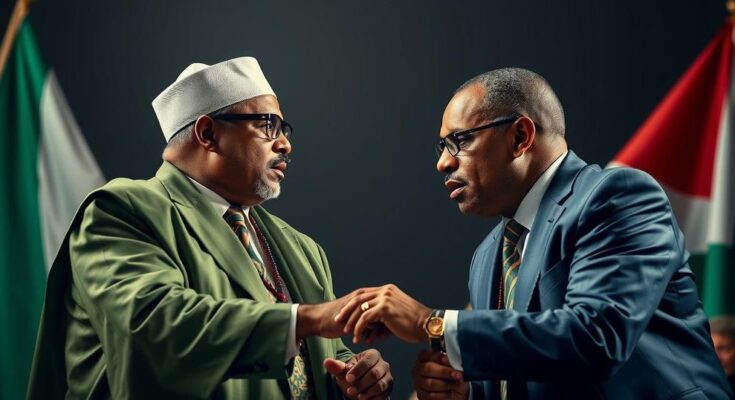Nigeria and South Africa are working to strengthen their bilateral relations, primarily focusing on mining and infrastructure development. During the 11th session of the Nigeria-South Africa Bi-National Commission, Nigeria announced a draft MoU aimed at capacity building for mining professionals. Key discussions will also involve broader economic collaboration and addressing regional issues, with future presidential sessions set to expand on these efforts.
Nigeria is keen to establish stronger strategic ties with South Africa, particularly in the areas of infrastructure development and capacity building within the mining sector. This commitment was articulated by Bianca Odumegwu-Ojukwu, Nigeria’s Minister of State for Foreign Affairs, during the commencement of the 11th session of the Nigeria-South Africa Bi-National Commission (BNC) in Cape Town. At this essential ministerial gathering, Odumegwu-Ojukwu announced that Nigeria has prepared a draft Memorandum of Understanding (MoU) aimed at enhancing the certification and capacity development of its mining professionals.
Odumegwu-Ojukwu emphasized, “Nigeria is prepared to explore new vistas of cooperation with the Republic of South Africa in various fields… we are seeking collaboration in enhancing the global competitiveness of our mining professionals.” The session was co-chaired by both Odumegwu-Ojukwu and Roland Lamola, South Africa’s Minister of International Relations and Cooperation, serving as a precursor to the presidential discussions scheduled for Tuesday. Presidents Bola Tinubu of Nigeria and Cyril Ramaphosa of South Africa are expected to lead dialogues on critical collaboration areas, which encompass trade and investment, defense, banking, and social sector collaborations.
This year marks a significant milestone, as it commemorates the 25th anniversary of the Bi-National Commission, initiated to fortify relations between these two major African economies. Odumegwu-Ojukwu highlighted the strategic importance of Nigeria-South Africa relations, stating, “The BNC promises a bright future for our relations, and we must approach it with zest and faith. Together, we shall win for our respective countries and for Africa.” Lamola reiterated the necessity to enhance trade relations under the framework of the African Continental Free Trade Agreement (AfCFTA), emphasizing that both nations must prioritize investments in bankable infrastructure projects. He acknowledged Nigeria’s historical support for South Africa during its anti-apartheid movement and stressed the importance of continued diplomatic collaboration and promoting global peace.
Additionally, Lamola noted that South Africa’s forthcoming presidency in the G20 in 2025 would focus on addressing African developmental issues, reinforcing the need for joint efforts in confronting regional conflicts and advocating reforms in international institutions such as the United Nations. Nigeria’s delegation at the session included representatives from key ministries, encompassing defense, industry, agriculture, and immigration, among others.
The relationship between Nigeria and South Africa is historically significant, rooted in mutual respect and cooperation, particularly since Nigeria was a formidable ally during South Africa’s anti-apartheid struggle. The Bi-National Commission serves as a platform for both nations to enhance collaborative efforts across various sectors, thereby fostering economic growth and stability. Recently, discussions have centered on leveraging their collective economic strengths to address challenges such as infrastructure deficits, trade imbalances, and regional security concerns while promoting broader continental initiatives like the AfCFTA.
In conclusion, Nigeria’s proactive approach to strengthening ties with South Africa demonstrates a commitment to enhancing collaboration in strategic sectors, particularly mining and infrastructure. With the upcoming presidential discussions, there is potential for both nations to deepen their economic integration and address regional challenges collectively. This landmark session not only celebrates 25 years of cooperation but also underscores a shared vision for a prosperous future for both countries and the African continent as a whole.
Original Source: businessday.ng




